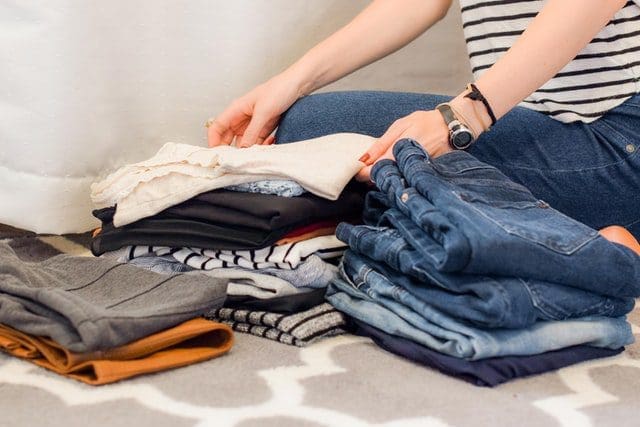More and more people are turning towards minimalism and seeing the benefits of having a life with less clutter. There are reasons to believe in the hype since it can reduce how much cleaning you have to do through the week and free up space. Additionally, being in a clean space can make it easier to focus.
If you are interested in creating a home environment that supports mental wellness and houses a little less clutter, the following four tips are for you.
Personal Assessment
It’s important to begin the decluttering process with an honest evaluation of what has brought you to your current levels of clutter. Do you have a hoarding habit? Do you shop for things even when you don’t need them? Is it hard parting with gifts from family members, even if you don’t like the gift?
If you don’t start here, you run the risk of re-accumulating all of your clutter after putting so much effort into removing unneeded items from your home. This can even become a cycle; create clutter, reduce clutter, see clutter build up again, and feel frustrated or unmotivated. Getting caught in this cycle will only further exasperate any stress caused by your current level of clutter. So, figure out how you got here and determine whether you would benefit from extra support as you work on decluttering your life.
Storage
Figuring out your options for storage is a crucial phase. You’ll want to determine whether using external storage or identifying more creative ways of storing your items within your home is the best fit for you. Many Seattle moving and storage services will simplify using external storage, whether as a temporary aid or a long-term solution.

Identify what’s important
Most often, we gather stuff over a prolonged period of time. We clutter our lives by accruing items for habits, hobbies, or practices—which don’t always stick. So, figuring out what you need in your life for your current habits and hobbies is critical.
If you are an active yogi, for example, then essential yoga equipment will likely take priority over keeping roller skates that you haven’t used in 15 years. Or, if you pride yourself on being a coffee enthusiast who makes high-quality lattes at home, it makes more sense to create room for an espresso machine than other kitchen gadgets you rarely find yourself using.
Functional Design
When you dig into the process of decluttering, most of what you are doing is figuring out what you need in your life. One thing that can support this process is understanding what you use each of your spaces for at home.
There is an element to design that pertains to our senses, using decor to create a feeling of peace or coziness. But when it comes to decluttering, we want to focus more on the element of design that makes function. Suppose you find that your daily objects (i.e., bag, wallet, keys, shoes, hats, and glasses) create clutter on your kitchen table or living room bookshelf. In that case, chances are you would benefit from an entryway organizer that can house all the items you grab before leaving and set them down once you get home.
Zones similar to this can exist throughout the house, like a coffee and tea zone in the kitchen, a bag or shoe zone in the closet, or a PM skincare routine zone in the medicine cabinet. Make sure that everything connected to the tasks of these zones has a place to be without creating clutter. This will help you to figure out what needs to stay and what can go.
The tips above are meant to streamline a process that can often look so daunting that people avoid it all together. You don’t need to avoid decluttering; all you need are the skills to get through this and create a more peaceful and functional environment in your home.
Featured Photo by Andrea Piacquadio from Pexels





